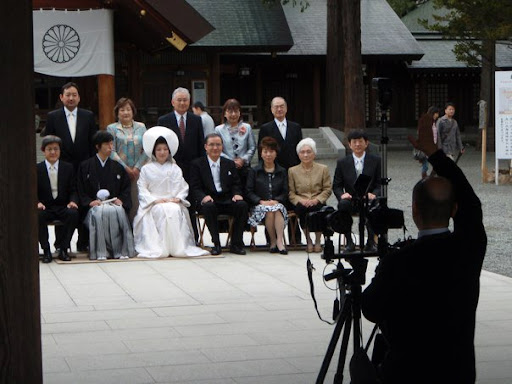My first night back in Tokyo, I slept in a coffin.
Capsule hotels are Japan's answer to cheap accommodation for business men who just want somewhere to sleep. Stacked together in the same room, the enclosed beds have just enough space for you to stretch out lengthways and --in the luxurious versions-- enough height for you to sit up. The pictures I had seen resembled coffins in a morgue but with doors that could be opened from the inside and an internal TV in case the afterlife got boring. Due to the close proximity of the guests, capsule hotels are usually male-only, so I had to hunt around to try out this quintessential modern Japanese experience.
With the help of a couple of friends, I found the
Ace Inn; a capsule hotel in Shinjuku, one of the major districts in downtown Tokyo. This place had both mixed and separate floors for men and women with shared bathroom facilities in the basement. Frankly, after being promised a claustrophobic night, buried alive with zombie-fied neighbours, it was disappointingly nice. The capsules resembled enclosed wooden bunk-beds with curtains over an opening in the side. Everyone had a locker for their belongings, but it was a narrow affair which was fine for my valuables, but wouldn't have taken a suitcase. The downstairs showers required a 100 Yen (~$1) coin to operate, apparently to limit the time and ensure everyone has a fighting chance to get clean in the morning. Clearly, some people must have been extremely smelly since I showered and finished before my 100 Yen had run out.
Despite it being 'Hanami' in Tokyo, the traditional weekend to view the cherry blossoms, the capsule hotel was nearly empty. There was a sign pinned up inside the elevator in English thanking visitors for coming to Tokyo during this difficult time and asking them to pass on the message that Tokyo was safe to visit. There is evident concern that the drop in tourism may succeed where the tsunami has not, and drive smaller businesses into bankruptcy.
That particular notice was written in almost perfect English, but elsewhere in the hotel the signs were more entertaining. My personal favourite was the note in the women's toilet stalls saying "
Please don't flush your sanitary thing down the toilet". Although, I must say the prospect promised by "
If you want to have fun, go to Roppongi or Shibuya!! You can have a hot night there." made me wonder if I should reconsider going to see the cherry blossoms.
There was an earthquake during my brief stay. A 4.3 magnitude shortly after I arrived at the hotel that vibrated the building. Earthquakes are never rare in Japan and the infrastructure has little problem coping with the vast majority of them. There is no doubt though, that the ringing of Japan's main island is a reminder of the all too recent tragedy. As night fell, the usually dazzling lights of one of the world's largest cities appeared at half-mast, both due to the saving of power in the wake of Fukushima's reactor problems and out of sympathy for the huge numbers of Japanese who had lost their homes further north.
In practical terms, the power shortage caused few inconveniences. The express train service running from the airport wasn't operating during the afternoons, but there was a direct bus that took the same amount of time, so it was a non-issue. Even the lack of lights at night was only dark by Tokyo standards; the city still shone with activity. I therefore echo my hotel's sentiments: if you are planning a trip to Tokyo, go. Take a camera. It's going to be great.
